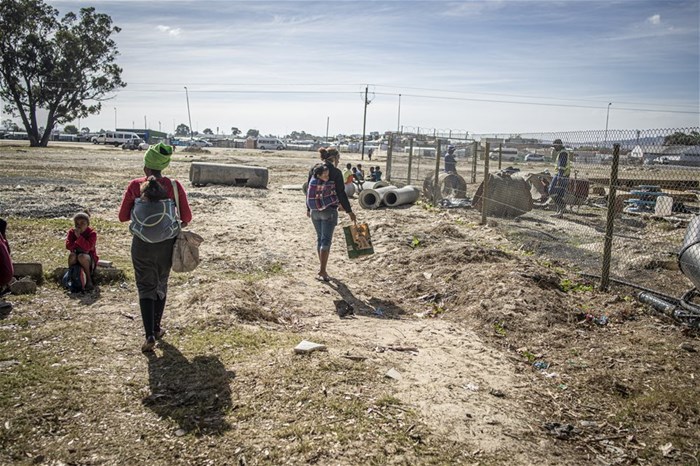SA's looming humanitarian crisis: Potential for civil unrest and riot

Our country has for several decades now been battling what is termed the triple challenge – high unemployment, gross inequality, and widespread poverty. These systemic challenges were further exacerbated by the pandemic, which literally stripped bare what was underlying but previously less visible to many – a population that is severely fractured, living on the fringes of economic prosperity, livelihoods that have been decimated, a large potential workforce that is too discouraged to look for work, a discernible polarity between rich and poor, worsening food insecurity and malnutrition, and a nation that is riddled with crime and other social challenges, teetering on the brink of widespread civil unrest.
Service delivery protests have become a regularly occurrence across South Africa, concentrated largely in under-served communities, and is now firmly entrenched in our social fabric, causing destruction of infrastructure and property, and severe damage to our economy. However, these protests are becoming more frequent, more violent, and are attracting larger crowds of mostly disgruntled and desperate unemployed youth. Our society is so fragile and vulnerable that any one of these protests has the potential to spiral out of control.
Its very hard to forget how the 2021 KZN riots snowballed, causing billions of rands worth of damage, insurance claims, lost jobs, and setting our economy on the back foot. What initially appeared to be anger over the incarceration of former president Jacob Zuna, spiralled into an opportunistic wave of violent looting and arson attacks that caused severe devastation over just 10 days.
Statistics South Africa’s 2022 General Household Survey (GHS) results for household food security indicate that around 20 million people have inadequate access to food. I believe this number could be closer to 30 million people – half our population, given that almost 19 million people are on social grants (for many their only source of income), which is inadequate to cover food and living expenses for a whole month, while unemployment is at 32,1%, youth unemployment is 44,3%, and a staggering 55% of people live below the Upper Bound Poverty Line (UBPL) of R1,558 per month.
Although food inflation appears to be easing, the unbearably high cost of living is affecting poor communities severely, stretching their household resources to the brink, while experiencing frequent challenges around food and nutrition security. These vulnerable people continue to rely on local NPOs for food assistance to survive until month end or until an income opportunity arises.
With millions of people destitute, idle, and on the fringes of economic activity – looking in, anger and resentment are mounting, many are resorting to opportunistic crime, but these occurrences may morph into pockets of organised, violent protests and looting, which could culminate into extensive loss of lives and tremendous destruction across our major cities.
Our current challenges are complex, multi-faceted, and highlights the delicate balance between socio-economic factors and political dynamics. Only sustained economic growth will create long term jobs and improve the livelihoods of people living in low-income communities.
There is enough evidence to show that lower prevalences of food insecurity in poor communities can result in better social cohesion and stem the tide of crime and violence. This solution requires government departments to work with and support civil society organisations to implement targeted short-term food security interventions, along with various developmental initiatives aimed principally at our unemployed youth and vulnerable women.

- How Africa's largest food distribution organisation works with researchers to improve operations06 Mar 15:39
- Rising food, fuel, and electricity prices put further pressure on struggling households11 Feb 14:43
- Safe and nutritious food – healthy communities19 Dec 15:18
- Child malnutrition statistics are going the wrong way08 Nov 11:24
- Recognising foodbanks as key stakeholders in solving food insecurity, malnutrition, and climate08 Oct 14:06
Related
How Africa's largest food distribution organisation works with researchers to improve operations 6 Mar 2025 Risky business: 5 strategies for SMEs to build resilience in 2025 4 Mar 2025 SA's retail sales rise 3.1% year on year in December 20 Feb 2025 Rising food, fuel, and electricity prices put further pressure on struggling households 11 Feb 2025 CPI increases in December 23 Jan 2025 Crack the code: Understanding — Use By, Sell By, and Best Before dates 12 Nov 2024




